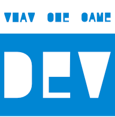Quote: Original post by laeuchli
I dont see why businesses created by loans of fractional reserve dollars are any more or less a real creation of capital, then a buisness created by a loan of dollars from a bank that is fully reserved. Dollars are artificial, and they enter the system faster or slower depending on what rate of reserve the central bank requires. Its not clear why 100% rate of reserve is automatically the best rate no matter what the circumstances. You are claiming that making it eaiser for banks to give loans distorts market signals in a way thats always undesirable, but I dont see how that can be true. What if there are X amount of good loans to be made, Y amount of loanable nondeposit assets(whatever those might be), and Z amount of total deposits and W amount of deposits that need to kept on hand on average. Are you saying that it never occurs that (X>Y), and that (Z>W)? To me it seems that this occurs all the time, under both regulated and deregulated markets, and if you dont allow fractional reserves in this case, then you are preventing the creation of desirable captial.
As far as I can see theres nothing wrong with fractional reserve banking per se, simply people misadminster it occassionally. This hardly seems to be an arguement to toss the whole system, since any paticular system would be misadjusted on occasion. I suppose one could attempt to claim that there would have been more real capital created over the past X years, if a different system had been used, but this seems like a difficult arguement to make to me. Do you have any paticular model that could demonstrate this?
This is such a huge topic, and especially difficult to discuss when our perspectives and base premises are so different. I've noticed that most of your posts seem to interchange capital, money, and specie, when they're each a distinct item.
Maybe we can start with a premise we both agree on and go from there.
Let's start with your statement,
Quote:
"I dont see why businesses created by loans of fractional reserve dollars are any more or less a real creation of capital, then a buisness created by a loan of dollars from a bank that is fully reserved."
Premise-
Capital is a realized sum of productive action, employed in a wealth creation venture.
Imagine a prehistoric man living day to day found a great hunting spot and got enough food to last him a week; so he has gained a weeks worth of wealth(time) for other ventures. If he uses that wealth of time to scout out other great hunting spots, or perfect his tools, or some other venture that makes him a more efficient actor then that wealth of time becomes capital, and he's employing that capital in the expectation that this investment will yield him additional wealth(time) in the future. He is deferring gratification of existing wealth to employ it in a wealth creation scheme.(this is predicted by the time preference theory of economics)
If he instead uses this time to lounge about the cave and feasts like a king for a few days until he runs out then he is consuming his wealth, thus the weeks worth of time is not capital but a perishable commodity.
So capital is different from money as you make obvious in this line,
Quote: Dollars are artificial, and they enter the system faster or slower depending on what rate of reserve the central bank requires.
Dollars are artificial, but capital is a non-tangible product. The two are distinct.
So back to our cave man, that I'll name Caveman(A);
This time he's still living hand to mouth and day to day because he never found that great hunting ground. The time requirements of basic food leave him no time to scout additional locations or to work on his hunting tools which are slowly falling in to disrepair.
His neighbor instead finds this great hunting ground and has a weeks worth of food, which equates to a wealth of 1 weeks time. This caveman, Caveman(B) is awful at making hunting tools but knows that Caveman(A) is great at it. Caveman(B) offers to give Caveman(A) the weeks worth of food in exchange for Caveman(A) making him a great set of hunting tools that will help him bring in more food. Caveman(B) is now turning his wealth(time) in to capital. His expectation is that while he'll still have to hunt for the remaining week, he'll end the week with a new set of tools that he wouldn't have otherwise had.
If he offers the same food in exchange for Caveman(A) to sing and dance for him then he is spending his wealth, and his wealth is not capital.
If Caveman(B) offers Caveman(A) food that he does not have, or scrolls out the prehistoric words for "1 weeks worth of food" on a stone slab, then Caveman(A) still goes hungry.
So can we both agree that capital is a realized sum of productive activity, employed in a wealth creation venture and that banks that use the fractional reserve system can create specie(whether physical dollars or electronic), but not actual capital?
If we can agree on that premise, and you haven't died of boredom I can explain myself after.






